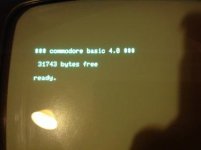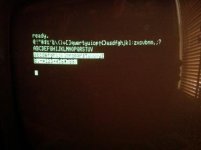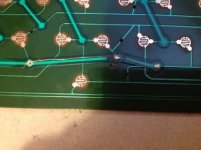JonB
Veteran Member
The PIA#1 (G8 ) is the only device programmed to issue an Interrupt Request. It does so every 60 Hz (16.66 mS) when the SYNC signal (Video On) pulses at the CB1 input (pin18 ). Hold /RES down to see if /IRQ is released. If so, it may get stuck low due to faulty 6520. The interrupt routine does the keyboard scan, increments the jiffy clock, blinks the cursor, etc.
IRQ isn't released when the reset is held low - it just stays low all the time. Guess this means 6520 swap out time. Not got the 40 pin sockets yet, or I'd be reporting on whether it worked or not!



